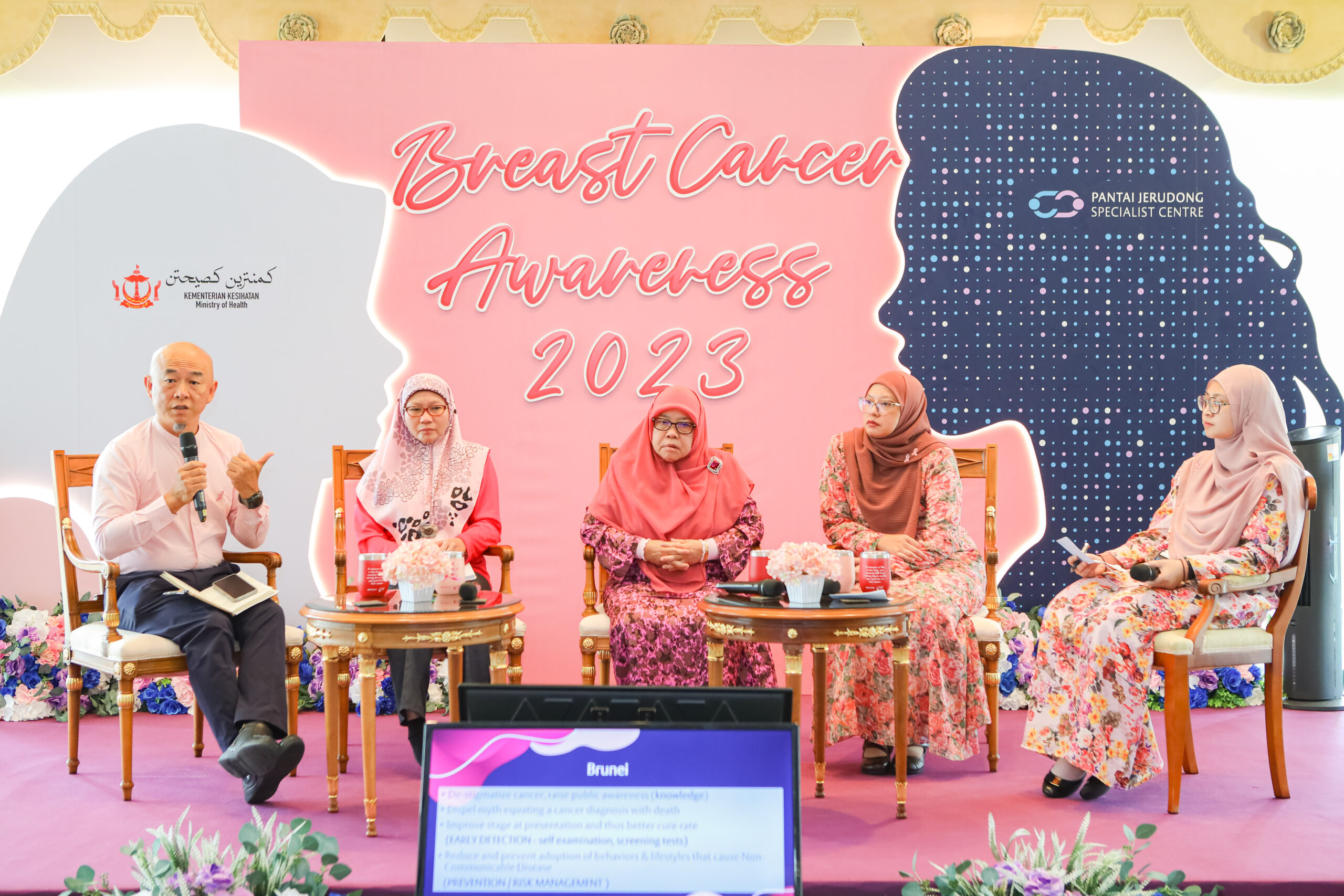Specialty nurse shares insights on empathetic communication in oncology
Effective communication plays a central role throughout cancer treatment journey, fostering connections not only among healthcare providers and patients but also with their loved ones.
Drawing from her nursing background and personal experiences with cancer within her own family, Pantai Jerudong Specialist Centre (PJSC) Specialty Nurse Hajah Surenawati binti Damit has gained profound insights into the significance of proficient communication.
Hajah Surenawati was a panel member in a forum on ‘A Conversation to Empower Women on Women’s Cancer: Time to Take Action Today’ held earlier this month.
She said that prior to her assignment in PJSC’s Oncology Department, she worked as a midwife.
“As a midwife, I understand the critical nature of effective communication, particularly in the context of childbirth, where communication between nurses and expectant mothers is essential,” she said.
“I experience it when I’m assisting a mother during labour in the delivery room,” she added. “It’s when the baby is safely delivered that I can truly affirm the success of the communication.”
After her assignment to the Oncology Department, the dynamics of communication changed, particularly when it came to sharing the life-altering news with cancer patients. The task of conveying a cancer diagnosis was far
from simple.
She found herself struggling with the challenge of conducting effective communication with patients and their families. She had limited knowledge about both the intricacies of the department and the complexities of cancer itself.
However, she soon realised that as a nurse, the responsibility of effective communication was vital.
Hajah Surenawati embarked on a learning journey, drawing from the expertise of doctors and experienced nurses, who shared valuable insights and strategies on navigating the delicate task of conveying the daunting diagnosis of cancer to patients and their loved ones.
“While working as a midwife, sharing the news of a safe delivery was a joyous occasion. However, when it came to delivering news related to cancer, it was often heart-wrenching.
“The expressions on the faces of patients and their families spoke volumes, with some reacting in shock, others gradually coming to terms with the harsh reality, and some grappling with denial,” she said, adding that this was a common and emotional scene in the Oncology Department.
In delivering a cancer diagnosis, the specialty nurse believes it is of utmost importance to prioritise understanding the patients and their families.
Empathy and compassion play a crucial role in these situations, given the profound emotional impact such news can have. Nurses must be prepared to offer support during these challenging times.
To ensure effective communication, nurses must possess a foundational knowledge.
This extends beyond merely understanding oncology; it encompasses the development of communication skills vital for interactions with patients. Acquiring these competencies is not instantaneous; instead, they are cultivated gradually through the ongoing execution of daily job tasks.
“Ongoing learning and the accumulation of knowledge from both doctors and experienced nurses are focal in equipping you with the capacity to address patients’ inquiries and offer them the necessary information and support,” she said.
“This, in turn, fortifies your ability to convey a cancer diagnosis to patients.”
She added, “This knowledge can be gleaned from experienced nurses and doctors, who are wellsprings of strength, allowing you to effectively communicate sensitive news to your patients.
“Often, when we convey information to our patients or their family members, they may outwardly appear to grasp it.
“Yet, we are aware that deep within their minds, a myriad of questions remain.”
Touching on scenarios following consultation with the doctor, Hajah Surenawati explained that some patients would seek a personal meeting with a nurse to address lingering doubts and questions.
“This stems from a certain level of discomfort in discussing their concerns with the doctor,” she said.
“As nurses, we are here to listen and provide the necessary assistance, practicing effective communication skills to clarify any uncertainties or gaps in understanding.”
To facilitate the process, the specialty nurse said they would encourage patients to jot down their questions or doubts at any time, as memory lapses can occur, and the nurses, in turn, will diligently answer their queries and, if needed, refer them to the doctors.
“Our aim is to ensure they feel as comfortable as possible, ultimately smoothing the path of their cancer treatment journey,” said Hajah Surenawati.
She believes that effective communication within the domain of cancer treatment involves the provision of not only vital information but also emotional support and empathy to patients and their families, especially crucial during a challenging and often life-altering experience. – Rokiah Mahmud







